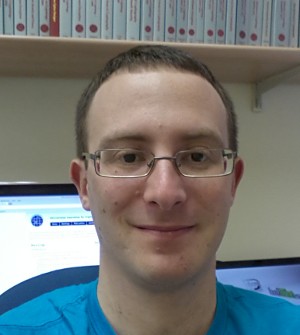Keynotes
Keynote I

Privacy - From the Ivory Tower to the Trenches in the Parliament
Orr Dunkelman, University of Haifa
Abstract
Privacy is a fundamental human right, but is one of the more complicated ones. Not only is privacy very context-oriented and society-oriented, it is hard to define privacy without involving adversaries trying to break it. In this talk, using several examples, such as biometric data, contact tracing, and vaccination passport, to study how research can impact real life. Furthermore, we will discuss the problems in disseminating state-of-the-art scientific knowledge to the public, and most especially, to the policy makers, in the context of complicated technologies aimed at offering privacy.
Short Bio
Orr Dunkelman is a full professor of computer science at the Computer Science Department at the University of Haifa in Israel, currently on Sabbatical at TU Berlin with the Security in Telecommunications (SecT) chair. He received his Ph.D. from the Technion in 2006, and his research interests include cryptography (with emphasis on cryptanalysis), privacy, computer security, and biometrics. Orr has published more than 100 publications in leading conferences and journals. He served as the program chair of EUROCRYPT 2022 (as well as other venues), and the general chair of EUROCRYPT 2018. Orr has been a member of the International Association for Cryptologic Research (IACR) board (2017-2018) and as was a co-director of the Center for Cyber, Law and Policy (CCLP) at the University of Haifa, and the head of the Center for research of biometrics and its applications that operates as part of the CCLP. He is also a co-founder of the "Privacy Israel" NGO.
Keynote II

Covert Social Influence Operations: Past, Present, and Future
V.S. Subrahmanian, Northwestern University
Abstract
Covert Social Influence Operations (CSIOs) have been studied for almost a dozen years. Since a first study of CSIOs in the 2014 Indian election and the DARPA Twitter Influence Bot Detection Challenge of 2015 under the SMISC Program, the field has come a long way. After a quick review of CSIOs of the past, this talk will quickly move on to how recent advances in AI will influence the direction of CSIOs. We can think of CSIOs as involving a threat actor (CSIO operator) targeting a defender (e.g. social platform). Though the extraordinary ability of modern AI to generate realistic text, image, video, audio, and multimodal content poses a potential threat, I will argue that the even more extraordinary ability of AI to dynamically adapt to changing circumstances and defender tactics will likely pose an even bigger threat. (The second part of this talk reflects joint work with Valerio LaGatta and Youzhi Zhang.)
Short Bio
V.S. Subrahmanian is the Walter P. Murphy Professor of Computer Science at the McCormick School of Engineering, Northwestern University and Buffett Faculty Fellow at the Northwestern Roberta Buffett Institute for Global Affairs. He is also the head of the Northwestern Security and AI Laboratory (NSAIL). Prior to this, Subrahmanian was The Dartmouth College Distinguished Professor in Cybersecurity, Technology, and Society at Dartmouth College with tenure in the Computer Science Department and Director of the Institute for Security, Technology and Society (ISTS). Prior to joining Dartmouth, he was a tenured Professor in the University of Maryland's Computer Science Department. He served a 6.5 year stint as Director of the University of Maryland's Institute for Advanced Computer Studies where he co-founded the Lab for Computational Cultural Dynamics and founded the Center for Digital International Government. His work stands squarely at the intersection of data-driven AI for increased security, policy, and business needs. Prof. Subrahmanian has been an invited speaker at the United Nations, Capitol Hill, the Mumbai Stock Exchange, and numerous other prestigious forums.